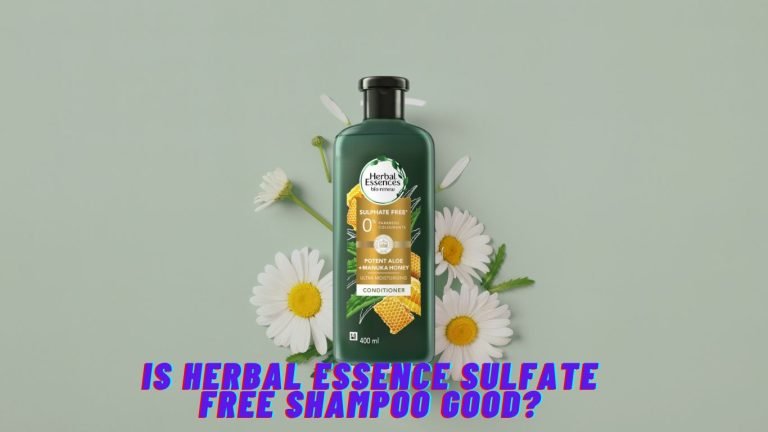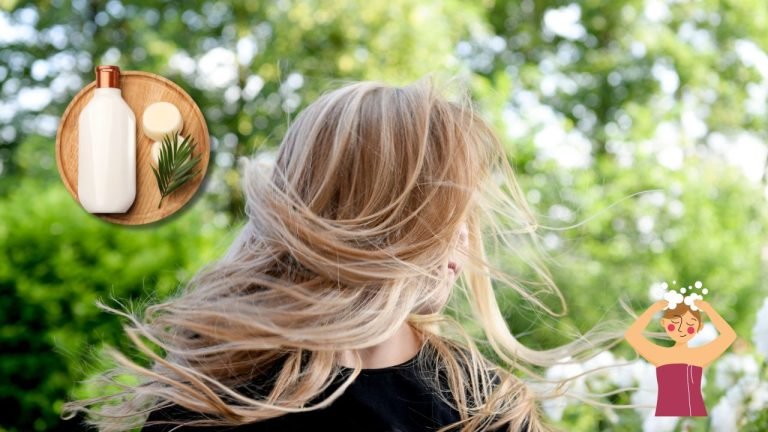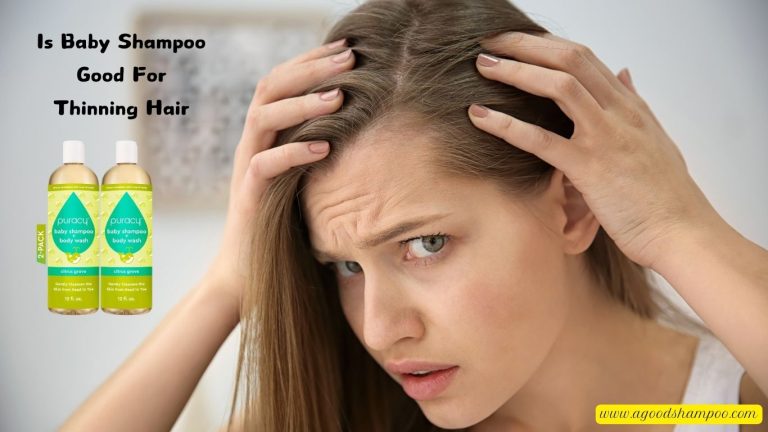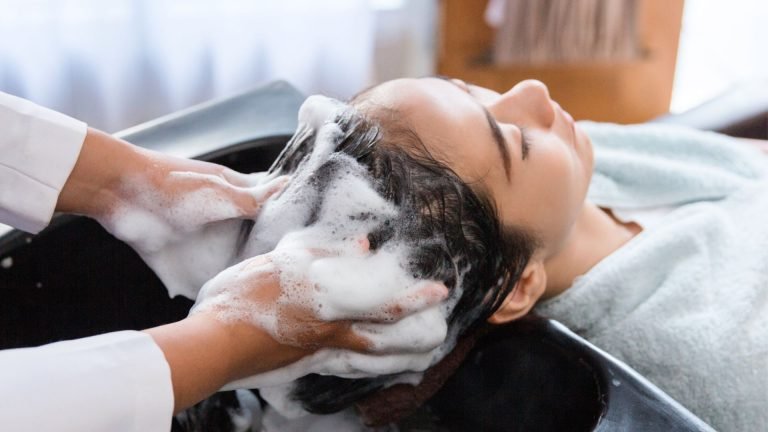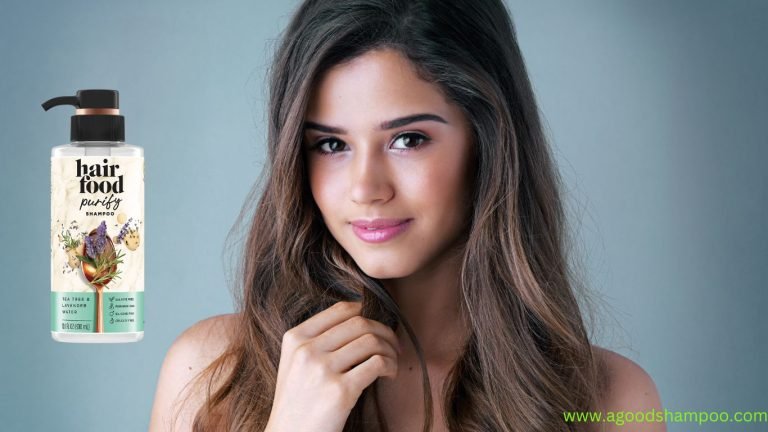Sulfate-Free Shampoo for Greasy Hair: Best Options & Benefits
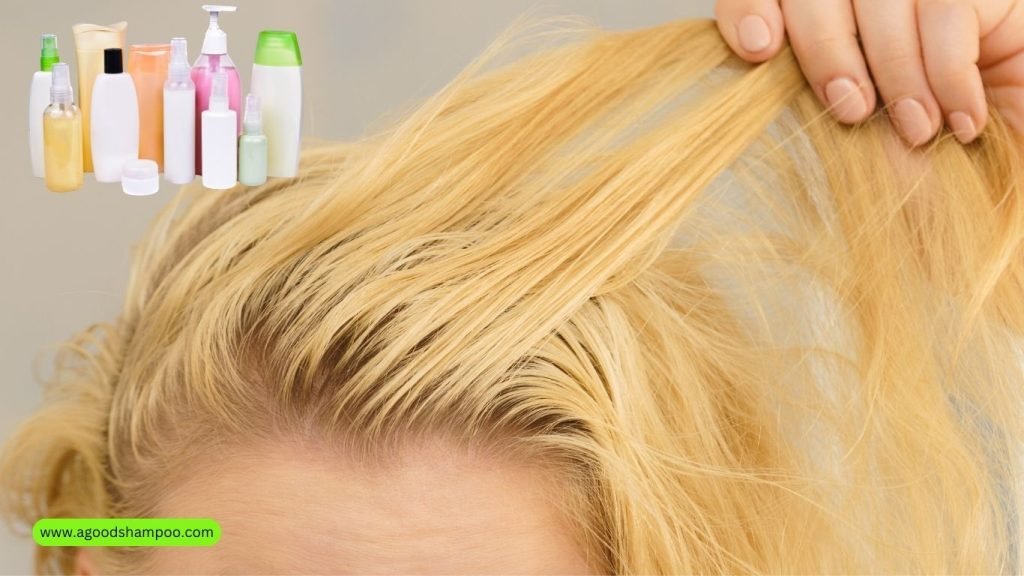 Greasy hair can be frustrating. We’ve all experienced those days when our hair just won’t cooperate and feels weighed down by excess oil. For some, it’s a persistent problem that demands a permanent solution. That’s where sulfate-free shampoos come into the conversation. But are these shampoos actually good for greasy hair, or could they make things worse? Let’s dive into the details and uncover whether sulfate-free shampoos are the right choice for you.
Greasy hair can be frustrating. We’ve all experienced those days when our hair just won’t cooperate and feels weighed down by excess oil. For some, it’s a persistent problem that demands a permanent solution. That’s where sulfate-free shampoos come into the conversation. But are these shampoos actually good for greasy hair, or could they make things worse? Let’s dive into the details and uncover whether sulfate-free shampoos are the right choice for you.
Understanding Sulfates and Their Role in Shampoo
Sulfates are cleansing agents commonly found in traditional shampoos. The most common ones are Sodium Lauryl Sulfate (SLS) and Sodium Laureth Sulfate (SLES). These ingredients are responsible for the rich lather we associate with a thorough clean. Sulfates are highly effective at cutting through oil and dirt, leaving the scalp and hair squeaky clean.
However, this effectiveness comes at a cost. Sulfates can be harsh on the scalp and hair, stripping away natural oils and sometimes causing irritation. This is particularly a concern for people with sensitive skin, color-treated hair, or naturally dry hair. But what about people with greasy hair? Should they avoid sulfates or embrace them?
Does Sulfate-Free Shampoo Help With Oily Hair?
When we talk about greasy hair, the first instinct is often to opt for something that offers a deep clean, which is where sulfates shine. However, sulfate-free shampoos are becoming increasingly popular due to their gentler formulas. The question remains—do they work well for oily hair?
The answer is yes, but with some conditions. Sulfate-free shampoos can indeed be beneficial for greasy hair, particularly if your scalp is overproducing oil due to being stripped too often by harsher shampoos. When you continuously strip your scalp of its natural oils with a sulfate-heavy product, it can overcompensate by producing even more oil, creating a vicious cycle of oiliness. By switching to a sulfate-free shampoo, you allow your scalp to balance itself out over time, reducing the amount of oil it produces.
However, this adjustment process may take a few weeks. Initially, your hair might feel even greasier than before, which can be discouraging. But stick with it—once your scalp adjusts, it should settle into producing a healthier amount of oil.
What Type of Shampoo is Good for Greasy Hair?
For those struggling with greasy hair, choosing the right shampoo is critical. Here are a few tips for selecting the best product:
- Look for Clarifying Formulas: Whether sulfate-free or not, clarifying shampoos are designed to remove build-up from styling products and excess oil. If your hair feels weighed down, using a clarifying shampoo once a week can help reset your scalp and hair.
- Avoid Heavy Conditioners: Heavy conditioners can weigh your hair down and make it appear greasier than it actually is. Opt for lightweight, oil-free conditioners and focus on applying them to the ends of your hair rather than the scalp.
- Sulfate-Free for Sensitive Scalps: If your greasy hair is accompanied by irritation or sensitivity, a sulfate-free shampoo may be a gentler option. Sulfate-free products cleanse without aggravating your scalp.
- Choose Ingredients Wisely: Look for ingredients such as tea tree oil, charcoal, or salicylic acid, which are known to help balance oil production and deeply cleanse the scalp without being too harsh.
Which Hair Types Should Use Sulfate-Free Shampoo?
While anyone can use sulfate-free shampoo, certain hair types benefit more from these gentler formulas:
- Curly and Textured Hair: Sulfate-free shampoos help preserve the natural oils in curly hair, reducing frizz and improving moisture retention.
- Color-Treated Hair: Sulfate-free shampoos are less likely to strip hair color, making them a better option for maintaining vibrant color.
- Sensitive Scalps: If you have a sensitive or easily irritated scalp, sulfate-free shampoos are less likely to cause discomfort.
People with fine or oily hair can also use sulfate-free shampoos, but should look for formulas that are specifically designed to prevent build-up and maintain volume.
Is Sulfate-Free Shampoo Good for Fine Hair?
Fine hair often becomes greasy faster because oil travels more easily from the scalp down the strands. Many fine-haired individuals worry that sulfate-free shampoos will weigh their hair down and make it limp. The good news is that sulfate-free shampoos have evolved to cater to different hair types, including fine hair.
Look for lightweight, volumizing formulas that cleanse effectively without stripping. Ingredients such as aloe vera, peppermint, and citrus extracts are excellent for removing oil and refreshing fine hair without leaving it flat.
Sulfate-Free Shampoo: Myths and Misconceptions
When it comes to sulfate-free shampoos, there are plenty of myths circulating online. One of the most common is that sulfate-free shampoos make hair greasy. While it’s true that some people experience an adjustment period where their hair feels greasier, this is usually temporary. As mentioned earlier, this is often due to the scalp overproducing oil after years of being stripped of its natural moisture. Over time, your scalp will regulate itself, and your hair will feel cleaner and healthier.
Another misconception is that sulfate-free shampoos can cause hair loss. There is no scientific evidence to support this claim. Hair loss is often due to other factors such as genetics, stress, or underlying medical conditions—not the type of shampoo you’re using.
What Are the Disadvantages of Sulfate-Free Shampoos?
While sulfate-free shampoos have many benefits, they’re not without their disadvantages. For some, sulfate-free shampoos don’t provide the same lather and squeaky-clean feeling as traditional shampoos. This can make it feel like your hair isn’t getting as clean, especially if you have oily hair. Additionally, sulfate-free shampoos tend to be more expensive, as they often contain higher-quality ingredients.
If you frequently use heavy styling products or live in a highly polluted area, you may find that sulfate-free shampoos don’t remove build-up as effectively. In this case, incorporating a clarifying shampoo into your routine once a week could be beneficial.
Best Sulfate-Free Shampoos for Greasy Hair
Finding the right sulfate-free shampoo for greasy hair can be a game-changer. Here are some of the best options to consider:
- Tea Tree Special Shampoo: Known for its clarifying properties, tea tree oil helps remove excess oil and leaves the scalp feeling refreshed.
- Briogeo Be Gentle, Be Kind Shampoo: A lightweight, sulfate-free formula that deeply cleanses while nourishing the scalp.
- Living Proof Perfect Hair Day: A sulfate-free option that leaves hair feeling cleaner for longer, making it ideal for oily hair types.
For more recommendations on sulfate-free shampoos, you can explore our detailed guide on agoodshampoo.com to find the best products tailored to your specific needs.
| Product Name | Key Ingredients | Best For | Special Features | Price Range | Where to Buy |
|---|---|---|---|---|---|
| Tea Tree Special Shampoo | Tea Tree Oil, Peppermint | Oily Hair, Dandruff | Clarifying, Refreshing, Removes Build-up | $15 – $25 | Online, Beauty Stores |
| Briogeo Be Gentle, Be Kind | Aloe Vera, Green Tea Extract | Fine Hair, Sensitive | Nourishing, Gentle Cleansing | $20 – $30 | Sephora, Briogeo Official Website |
| Living Proof Perfect Hair Day | Healthy Hair Molecule, Grapefruit Extract | Oily Scalp | Oil Control, Extended Clean Feel | $25 – $35 | Ulta, Amazon |
| SheaMoisture African Black Soap Shampoo | African Black Soap, Tea Tree Oil | Oily & Itchy Scalp | Soothes Scalp, Balances Oil Production | $10 – $15 | Target, Walmart |
| OGX Hydrating + Tea Tree Mint Shampoo | Tea Tree Oil, Peppermint Extract | Oily Hair, Dry Ends | Hydrating & Refreshing, Budget Friendly | $5 – $10 | Drugstores, Amazon |
The bottom line is that sulfate-free shampoos can absolutely be a good option for greasy hair, especially if you’re looking for a gentler alternative that won’t irritate your scalp or dry out your strands. However, patience is key during the transition period. Your scalp needs time to adjust, and once it does, you’ll likely find that your hair feels healthier and more balanced.
Remember to choose a formula that suits your hair type and use additional products like clarifying shampoos or lightweight conditioners to complement your routine. To discover more on how to care for greasy hair and find the best sulfate-free options, head over to agoodshampoo.com, where we dive deep into hair care that truly works.

Carolina Herrera: Cosmetics specialist & Hair Analyst. Specializing in hair treatments, Carolina provides thorough reviews and advice on choosing the best products for damaged or treated hair.


